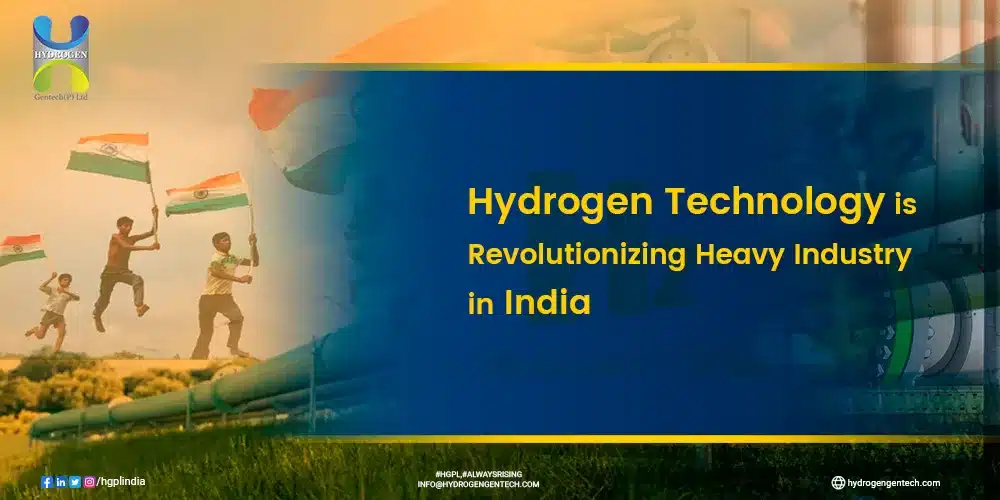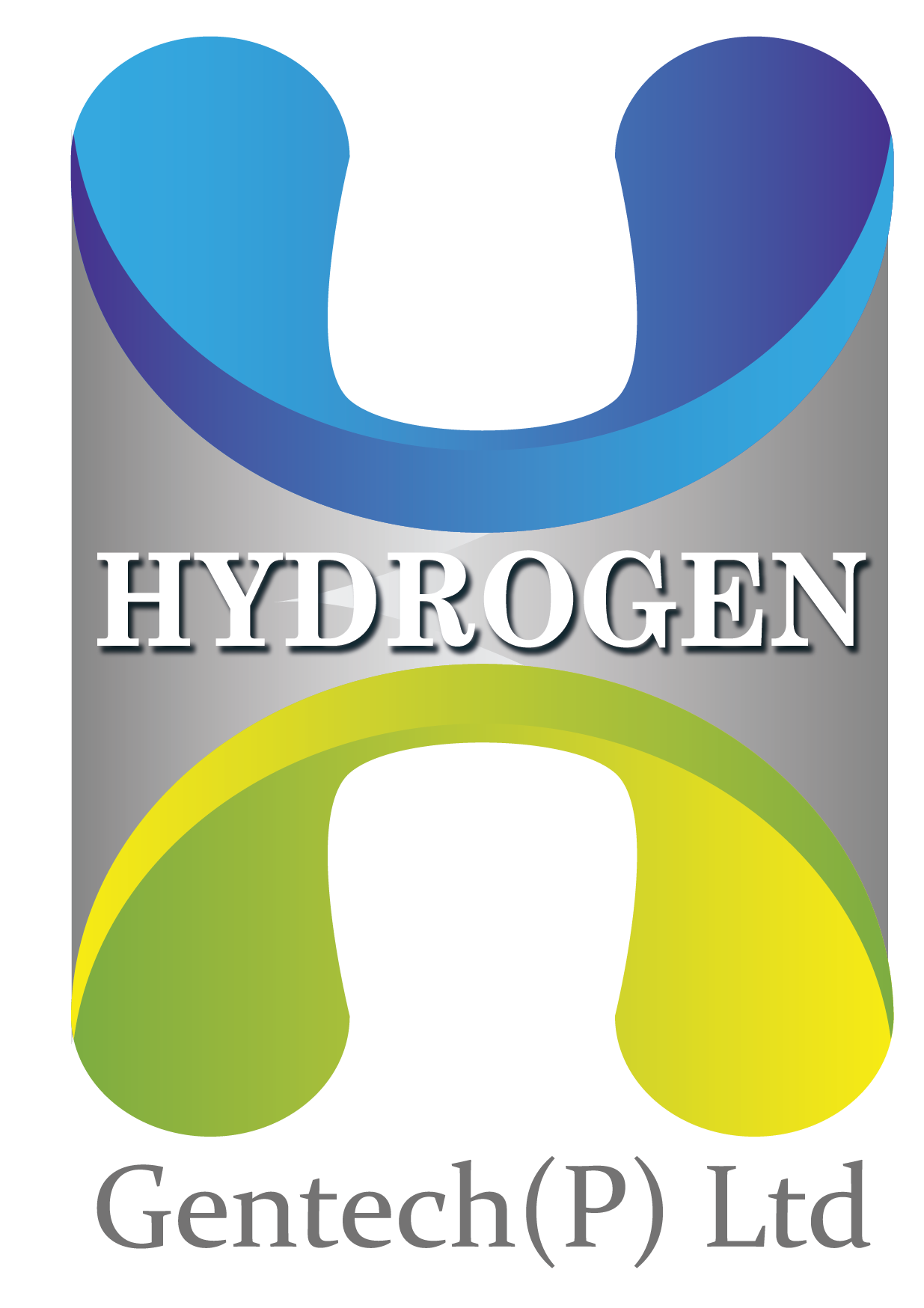
Hydrogen technology is no longer just a futuristic concept. It is actively transforming India’s heavy industries by enabling decarbonization, improving energy efficiency, and reducing dependency on imported fossil fuels. For EPC companies, process plant operators, and industrial manufacturers, hydrogen presents a viable path toward long-term sustainability, regulatory compliance, and competitive differentiation.
Why Heavy Industry Needs Hydrogen
India’s industrial backbone—steel, cement, glass, fertilizers, chemicals, and refineries—depends heavily on fossil fuels for high-temperature heat and hydrogen-based processing. These sectors are also some of the highest emitters of greenhouse gases, making them key targets for decarbonization.
Key Pain Points in Traditional Industrial Energy Use:
- High Scope 1 emissions from coal and natural gas combustion
- Rising global compliance pressures such as EU’s Carbon Border Adjustment Mechanism (CBAM)
- Fossil fuel price volatility and dependency on imports
Green hydrogen, produced using renewable energy, provides a clean and flexible alternative that doesn’t compromise process efficiency. It can replace fossil fuels in combustion or serve as a clean feedstock in chemical processes.
Sector-Wise Impact of Hydrogen Technology
1. Steel Manufacturing
Steel accounts for nearly 7% of global CO2 emissions. Hydrogen-based Direct Reduced Iron (DRI) technology eliminates the need for coal in reduction processes.
- Emission Reduction: Up to 95% reduction in CO2 emissions
- Industry Movement: Indian giants like JSW Steel, Tata Steel, and ArcelorMittal are piloting hydrogen-based steel production
- Opportunity for EPC Players: Design and supply of modular hydrogen skids compatible with DRI plants
2. Cement Industry
Cement production requires high-temperature kilns, traditionally powered by coal and petcoke.
- Hydrogen Use Case: As a combustion fuel to achieve the 1400–1500°C needed for clinker production
- International Benchmarks: Europe leads in pilot projects—India can replicate these to meet both domestic and export-driven compliance goals
- Impact: Significant CO2 reductions while maintaining process consistency
3. Refining & Petrochemicals
These sectors consume hydrogen for hydrotreating, hydrocracking, and desulfurization. Today, most of this is grey hydrogen.
- Shift to Green Hydrogen: Replaces fossil-derived hydrogen with zero-emission alternative
- Integration Possibilities: On-site electrolyzers and purification units designed for seamless retrofitting
- Business Benefit: Decarbonization without disrupting process continuity
4. Glass & Ceramics
These industries rely on stable, high-temperature heat and precise temperature control.
- Hydrogen Solution: Acts as a clean-burning, controllable energy source
- Thermal Efficiency: Enables better heat distribution with fewer emissions
- Value Proposition: Cleaner products, lower carbon footprint
5. Mining & Metals
Mining operations often function in remote areas with high reliance on diesel.
- Hydrogen Applications: Fuel cells for vehicles and generators; on-site H2 generation for off-grid operations
- Benefits: Lower emissions, quieter operations, longer range for heavy-duty vehicles
Technology Enablers Driving Adoption
Electrolyzer Advancements
Domestic production incentives, lower renewable power tariffs, and newer stack technologies have brought down costs. India’s National Green Hydrogen Mission aims to localize electrolyzer manufacturing.
Modular Skid Systems
Containerized hydrogen generation and purification units allow quick deployment, scalability, and integration with existing industrial infrastructure.
Balance of Plant (BoP) Innovations
Efficient gas lye separators, deoxo dryers, and purification systems ensure safe and stable operation of H2 facilities at industrial sites.
SCADA & Automation
Remote diagnostics, safety interlocks, and digital integration enable reliable, low-maintenance hydrogen operations in large-scale plants.
Key Benefits for Indian Industries
- Regulatory Compliance: Align with domestic and international emission norms
- Energy Security: Reduce reliance on imported LNG, coal, and oil
- Operational Flexibility: Enable hybrid operations alongside conventional systems
- Brand Positioning: Gain first-mover advantage as a climate-responsible manufacturer
- Access to Incentives: Capital subsidies, tax breaks, and preferred tendering via the National Green Hydrogen Mission
What Challenges Remain?
Despite the immense potential, Indian industries must overcome certain barriers:
- Capex Intensity: Electrolyzers, BoP systems, and integration remain capital-intensive
- Skill Shortage: Lack of certified professionals for hydrogen handling, O&M, and safety protocols
- Infrastructure: Hydrogen storage, transport, and refueling ecosystems are still nascent
Strategic Solutions:
- Public-Private Hydrogen Clusters: Shared hubs reduce unit economics and accelerate ecosystem development
- On-Site Hydrogen Generation: Reduces logistics, losses, and delays
- Training & Safety Protocols: Skill development programs in partnership with industry bodies and government
Hydrogen is no longer an experimental fuel; it is a practical, scalable energy solution that enables decarbonization, regulatory readiness, and operational efficiency. For India’s heavy industries, this is not just an energy transition—it is a business transformation.
EPC firms, industrial manufacturers, and plant operators that invest in hydrogen-ready infrastructure today will be tomorrow’s leaders in green manufacturing.
Hydrogen Gentech Private Limited (HGPL) supports Indian industries with turnkey EPC solutions for hydrogen generation, purification, and modular Balance of Plant systems. Contact our team to explore how hydrogen can future-proof your operations.

